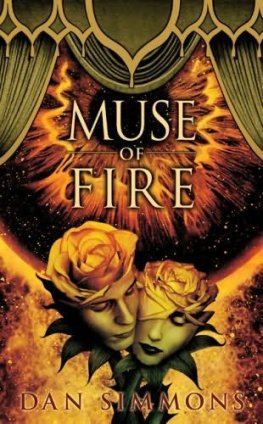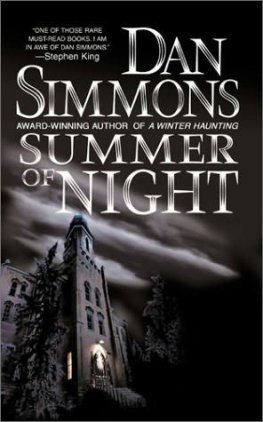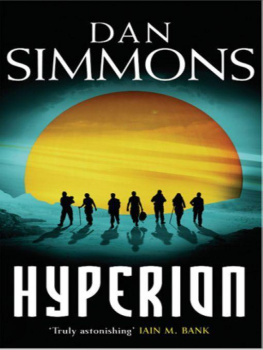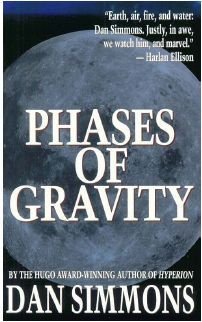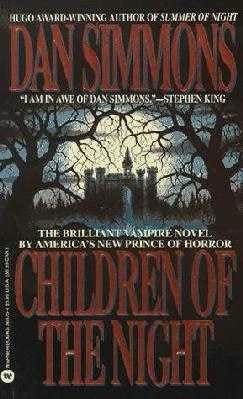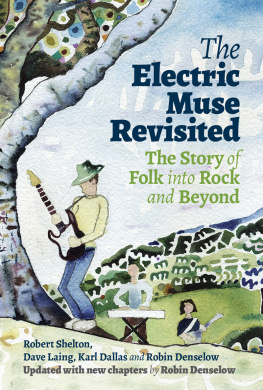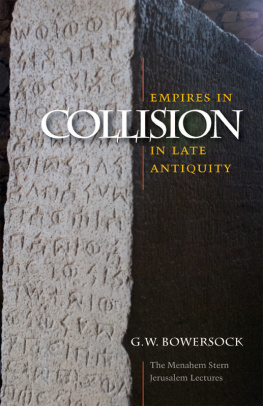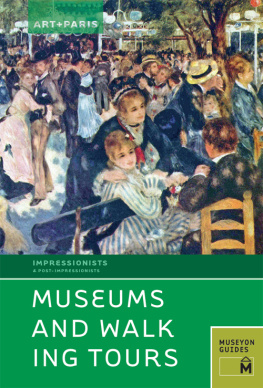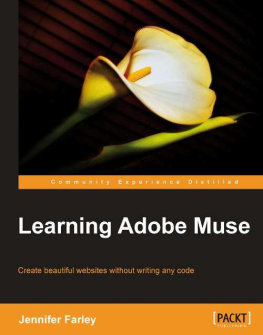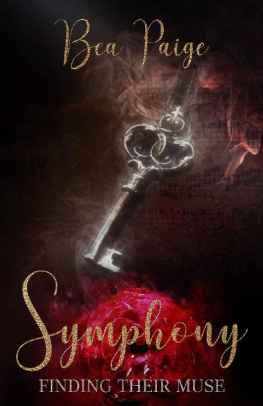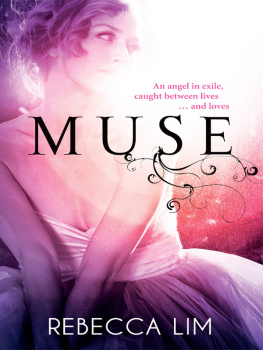Dan Simmons - Muse of Fire
Here you can read online Dan Simmons - Muse of Fire full text of the book (entire story) in english for free. Download pdf and epub, get meaning, cover and reviews about this ebook. year: 2008, genre: Science fiction. Description of the work, (preface) as well as reviews are available. Best literature library LitArk.com created for fans of good reading and offers a wide selection of genres:
Romance novel
Science fiction
Adventure
Detective
Science
History
Home and family
Prose
Art
Politics
Computer
Non-fiction
Religion
Business
Children
Humor
Choose a favorite category and find really read worthwhile books. Enjoy immersion in the world of imagination, feel the emotions of the characters or learn something new for yourself, make an fascinating discovery.
- Book:Muse of Fire
- Author:
- Genre:
- Year:2008
- Rating:5 / 5
- Favourites:Add to favourites
- Your mark:
- 100
- 1
- 2
- 3
- 4
- 5
Muse of Fire: summary, description and annotation
We offer to read an annotation, description, summary or preface (depends on what the author of the book "Muse of Fire" wrote himself). If you haven't found the necessary information about the book — write in the comments, we will try to find it.
Muse of Fire — read online for free the complete book (whole text) full work
Below is the text of the book, divided by pages. System saving the place of the last page read, allows you to conveniently read the book "Muse of Fire" online for free, without having to search again every time where you left off. Put a bookmark, and you can go to the page where you finished reading at any time.
Font size:
Interval:
Bookmark:

MUSE OF FIRE
DAN SIMMONS
A writer of considerable power, range, and ambition, an eclectic talent not willing to be restricted to any one genre, Dan Simmons sold his first story to The Twilight Zone Magazine in 1982. By the end of that decade, he had become one of the most popular and bestselling authors in both the horror and the science fiction genres, winning, for instance, both the Hugo Award for his epic science fiction novel Hyperion and the Bram Stoker Award for his huge horror novel Carrion Comfort in the same year, 1990. He has continued to split his output since between science fiction (The Fall of Hyperion, The Hollow Man) and horror (Song of Kali, Summer of Night, Children of the Night) although a few of his novels are downright unclassifiable (Phases of Gravity, for instance, which is a straight literary novel although it was published as part of a science fiction line), and some (like Children of the Night) could be legitimately considered to be either science fiction or horror, depending on how you squint at them. Similarly, his first collection, Prayers to Broken Stones, contains a mix of science fiction, fantasy, horror, and mainstream stories, as does his most recent collection, Lovedeath. Some of his most recent books confirm his reputation for unpredictability, including The Crook Factory, a spy thriller set in World War II and starring Ernest Hemingway; Darwins Blade, a statistical thriller halfway between mystery and horror; Hardcase, a hard-boiled detective novel; and A Winter Haunting, a ghost story. Coming up is a new novel, The Terror. Born in Peoria, Illinois, Simmons now lives with his family in Colorado.
Simmons has established himself as a force to be reckoned with in the New Space Opera with his glittering, baroque Hyperion novels, and his two most recent novels, Ilium and Olympus, which use the Trojan War as the backdrop for an ambitious space opera duology. In the complex and multi-faceted novella that follows, he takes us on a journey of unparalleled scope and scale, in company with a hapless group of actors who find themselves burdened with the responsibility of putting on the single most important theatrical performance in human history
I sometimes think that none of the rest of the things would have happened if we hadnt performed the Scottish Play that night at Mezel-Goull. Nothing good ever comes from putting on the Scottish Playif we remember any history at all, we know thatand much bad often does.
But I doubt if there have ever been ramifications like this before.
The Muse of Fire followed the Archon funeral barge out of the Pleroma into the Kenoma, slipped out of its pleromic wake like a newborn emerging from a caul, and made its own weak-fusion way to our next stop on the tour, a world known only as 25-25-261B. Id been there before. By this time, Id been with the Earths Men long enough to have visited all of the four hundred or so worlds we were allowed to tour regularly. They say that there are over ten thousand worlds in the Tellten thousand we humans have been scattered to, I meanbut Ill never know if thats true. Well never know.
I always love the way the Muse roars down through cloud and sky on her thundering three-mile-long pillar of fire, especially at night, and the descent to the arbeiter community on the coastal plateau below the Archon keep of Mezel-Goull was no disappointment.
We landed on the inner edge of the great stone shelf separating the human villages from the acid-tossed sea cliffs. One glance at the Muses log had reminded me that 25-25-261B had only three variations in its day and weather: twilight-bright dimness and scalding spray blown in by winds from the crashing black ocean of sulfuric acid for fourteen hours each day; twilight-bright dimness and sandstorms blown to the barely habitable coasts by hot winds from the interior of the continent for another fourteen hours each day; and full darkness when no winds blew for the final fourteen hours. The air was breathable hereall of our tour worlds had that in common, of course, since we only travel to planets where the Archons keep arbeiter and dole slavesbut even in the middle of their twenty-one hours of daytime on this bleak rock, the sky brightened to only a dim, brooding grayness because of the constant layers of clouds, and no one ventured out unprotected during the hours when the scalding spray blew in from the black, sulfuric sea.
The Muse touched down during the hours the hot simoom winds blew. No one came out from the huddled stone city to meet us. The thousands of arbeiters were either sleeping in their barracks between shifts or working in the mines, dropping down to darkness in rusty buckets and then following veins miles deeper underground to harvest a gray fungus that the Archons considered a delicacy. The few hundred local doles in their somewhat higher huddle of stone hovels were doing whatever doles do: recording, accounting, measuring, file-keeping, waiting for instructions from their masters via the dragomen.
We stayed inside the ship while the hot winds roared, but the Muses cabiri scrambled out through maintenance hatches like so many flesh-and-metal spiders, opened storage panels, rigged worklights, strung long cables from the hull, pounded k-chrome stakes into solid rock, unfolded steel-mesh canvas, and had the main performance tent up and rigidified within thirty minutes. The first show was not scheduled to begin for another six hours, but it took a while for the cabiri to arrange the lighting and stage and set up the many rows of seats. The old Globe Theater in London during the Bards time, according to troupe lore, would seat three thousand, but our little tent-theater comfortably seated about eight hundred human beings. We expected far fewer than that during each of our four scheduled performances on 25-25-261B.
On many worlds we have permission to land at a variety of arbeiter huddles, but this world had only this single major human population center. The town has no name, of course. We humans gave up naming things long ago, abandoning that habit along with our culture, politics, arts, history, hope, and sense of self. No one in the troupe or among the arbeiters and doles here had a clue as to who had named the Archon keep Mezel-Goull, which apparently meant Devils Rest, but the name seemed appropriate. It sounded appropriate, even if the words actually had no meaning.
The hulking mass of Archon steel and black stone dominated an overhanging cliff about six miles north of this plateau upon which the humans were housed. Through binoculars, I could see the tall slits of tower windows glowing yellow while pale white searchlights stabbed out from the keep and up to the highlands, then probed down over the human escarpment and across the Muse, then swept out to the sulfur sea. None of us from the troupe had ever been to the keep, of coursewhy would humans, other than dragomen (whom most of us do not consider human), have any business with Archons? They own us, they control our lives, they dictate our actions and fates, but they have no interest in us and we usually return the favor.
* * * *There were twenty-three of us in this Shakespearean troupe called the Earths Men. Not all of us were men, of course, although we knew through stage history that in the Bards day even the womens roles were acted by males.
My name is Wilbr. I was twenty SEY old that day we landed on 25- 25-261B and had been chosen for the troupe when I was nine and turned out to be good enough at memorizing my lines and hitting my marks to be on stage for most productions, but by age twenty I knew in my heart that I would never be a great actor. Probably not even a good one. But my hope remained to play Hamlet someday, somehow, somewhere. Even if only once.
Next pageFont size:
Interval:
Bookmark:
Similar books «Muse of Fire»
Look at similar books to Muse of Fire. We have selected literature similar in name and meaning in the hope of providing readers with more options to find new, interesting, not yet read works.
Discussion, reviews of the book Muse of Fire and just readers' own opinions. Leave your comments, write what you think about the work, its meaning or the main characters. Specify what exactly you liked and what you didn't like, and why you think so.

